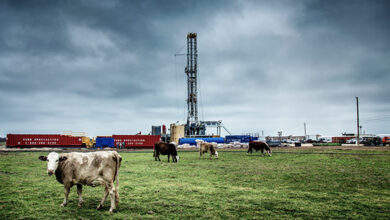Increased backlog, jackup rate activity lay strong foundation for Shelf Drilling ahead of 2024
With a backlog of $2.5 billion across 34 contracted rigs as of 30 September, Shelf Drilling remained relatively strong over the past fiscal quarter. CEO David Mullen said as much in the company’s 9 November Q3 2023 earnings call, noting various new contract commencements and improving dayrates.
A lot of this comes down to the activity within their fleet of jackup rigs over the past quarter, which included the Fortress, Adriatic I, Mentor and Key Singapore securing or beginning new contracts, while the Baltic and Trident II completed contracts of their own as September came to a close.
With operations starting up in September, the Fortress contract with CNOOC Petroleum Europe Limited in the UK Central North Sea is initially set for two wells, with work expected to last between four and five months. The contract value for the firm period stands at roughly $17 million but includes options for additional wells with a total estimated duration of 13 months.
Meanwhile, the Adriatic I and Mentor rigs secured new contracts for operations offshore Nigeria for firm durations of 16 months and 8 months, respectively, valuing nearly $93 million. Work began on both in October, with Adriatic I expected to finish in February 2025 while the Mentor completes its contract in June 2024.
Wrapping up the recent contract awards, the Key Singapore jackup commenced a new three-year contract with ONGC for operations in the Mumbai High area offshore India, with work also beginning in October.
Elsewhere, its Fortress jackup secured a two-well contract extension in the UK North Sea, with the first term firm until June 2024 at a value of $18 million. The contract also includes options for an additional two wells, which would add eight months to its duration.
The Baltic and Trident II jackups recently completed contracts with TotalEnergies offshore Nigeria and ONGC offshore India respectively in September, leaving the Baltic available for multiple opportunities going forward while the Trident II undergoes a planned OOS project before returning to India to commence on a three-year contract.
All told Shelf Drilling’s 34 contracted rigs in Q3 2023 led to a utilization rate of 94%. In addition to that, their adjusted revenues of $264 million this past quarter represented a 25% increase on Q2 earnings. And with a major refinancing transaction in the company’s rear-view, Mr Mullen is looking forward, saying it will “provide additional flexibility to capitalize on the strong tailwinds in the global jackup market. The outlook for our industry remains very constructive with the backdrop of robust oil and gas prices and shortage of rig capacity.”




